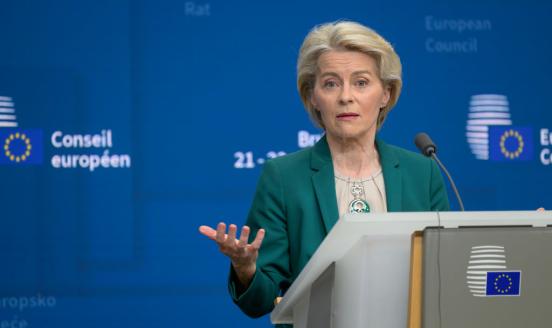A fiscal framework for the EU
Doubts about the fiscal sustainability of various member states have led Europe to enact greater coordination and surveillance. But are these policies

Speakers
Lucio Pench
Non-resident fellow
Kathrin Muehlbronner
Senior Vice President, Sovereign Risk Group, Moody's,
Focco Vijselaar
Chief Economist at the Dutch Ministry of Economic Affairs and Climate Policy,
SUmmary
See below for video recording and event materials.
Zsolt Darvas presented a new paper on the EU’s fiscal framework. Darvas and his co-authors, Grégory Claeys and Álvaro Leandro, argue that the current framework is inefficient, and does not fulfil the two objectives which should be at the heart of any fiscal framework: debt sustainability and fiscal stabilisation. They therefore propose an alternative framework, which would require a change to the Stability and Growth Pact but no treaty changes.
This alternative framework would scrap all rules related to the structural balance (the budget balance cleaned of the impact of the economic cyclie and one-off expenditures and revenue measures). The structural balance is very hard to estimate and therefore conducive to policy mistakes. The authors would replace structural balance rules with an expenditure rule including a debt correction mechanism. Such an expenditure rule is more transparent, easier to understand, and involves a tool (expenditure) which is directly under the control of governments, unlike the structural balance. They also propose establishing a European Fiscal Council, which would be independent from other European institutions. Its role would be to oversee the system and exercise discretion as to whether and when to suspend application of certain aspects of the rule for countries in exceptional circumstances.
The discussants mostly agreed with Zsolt Darvas’ characterisation of the current framework: it is complex, lacks transparency, and involves arbitrary use of flexibility which can lead to unpredictable outcomes. They also agreed that the reduction of debt to a prudent level, which leaves leeway for fiscal stabilisation in bad times, should be the ultimate goal, and that an expenditure rule with a debt correction mechanism is a good way to achieve this. However, there were doubts about the political viability of a change to the Stability and Growth Pact: most of the rules, as required by the Fiscal Compact, have been transposed into national law, which would considerably hinder their modification.
Svend E. Hougaard Jensen argued that not all countries are prone to deficit bias. For example, Nordic countries had built up fiscal surpluses before the crisis. He proposed a fiscal system based on debt targets, leaving each country to find its own way to achieve them. Kathrin Muehlbronner was sceptical about the establishment of a new European Fiscal Council, while she is very supportive of national fiscal councils. Lucio Pench argued that while an expenditure rule is the right operational target and public debt should be the long-term anchor, an intermediate objective is also needed, for example the primary balance. Focco Vijselaar argued for the benefits of multi-year fiscal targeting, and he also noted that while the 3% of GDP Maastricht deficit criterion is somewhat arbitrary, it still has an important function in avoiding gross fiscal errors, since it is a simple rule easily understood by politicians. A question was also raised during the Q&A session about the ability of this new expenditure rule to ensure an adequate aggregate fiscal stance in the euro area. Another point was that national ownership of the existing supranational rules is very weak. Some panellists were unconvinced by the authors’ central argument that simply introducing a fiscal rule which is generally recognised to be better will lead to more ownership.









